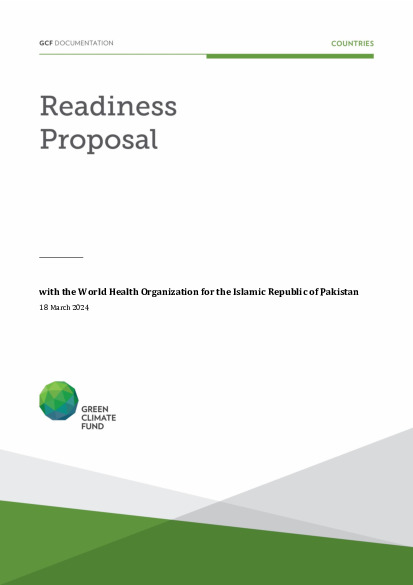Building capacities and prioritizing national actions for a climate-resilient and low-emission health sector

Building capacities and prioritizing national actions for a climate-resilient and low-emission health sector
The existing healthcare system in Pakistan is inadequate healthcare. Further, limited access to medical services in climate-vulnerable areas, and insufficient public health programs have left our communities exposed to heightened health risks. Additionally, the lack of financial resources and expertise to access climate finance mechanisms further impedes the country’s ability to implement climate-resilient health interventions.
The central aim of this proposal is to establish the foundations for building a climate resilient and low emission health system in Pakistan. The urgent needs to address these gaps will be met by this project by strengthening the country's readiness to access climate finance for the health sector, building capacity of health institutions, government agencies, and community organizations to bridge the existing capacity deficit and facilitate access to climate finance instruments to support the development of robust and adaptive public health strategies.
Direct beneficiaries are MoCC&EC, MONHSRC, National Institute of Health (NIH), provincial health departments (including national consultants). Indirect beneficiaries include other engaged in health-determining sectors however, these activities will contribute to a more resilient and environmentally sustainable health system which enables to protect the health of Pakistan’s population in the face of a changing climate.